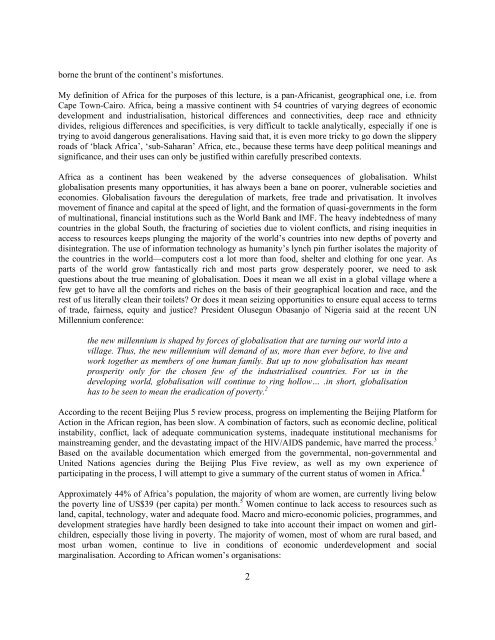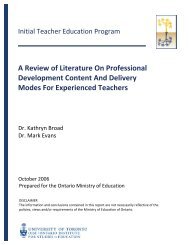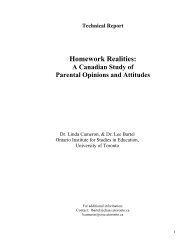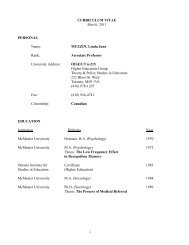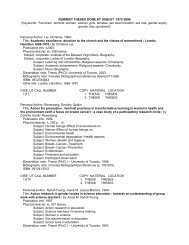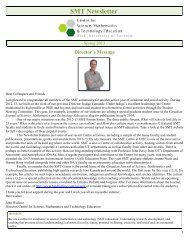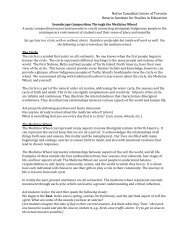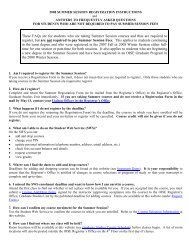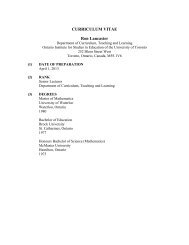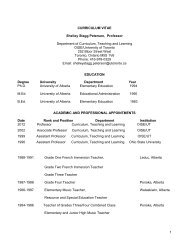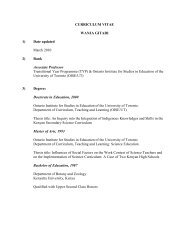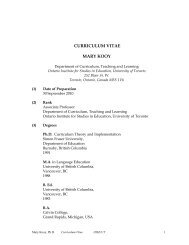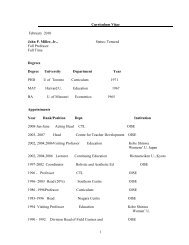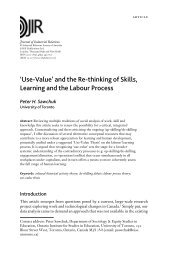CREATING AND SUSTAINING FEMINIST SPACE IN AFRICA ...
CREATING AND SUSTAINING FEMINIST SPACE IN AFRICA ...
CREATING AND SUSTAINING FEMINIST SPACE IN AFRICA ...
Create successful ePaper yourself
Turn your PDF publications into a flip-book with our unique Google optimized e-Paper software.
orne the brunt of the continent’s misfortunes.<br />
My definition of Africa for the purposes of this lecture, is a pan-Africanist, geographical one, i.e. from<br />
Cape Town-Cairo. Africa, being a massive continent with 54 countries of varying degrees of economic<br />
development and industrialisation, historical differences and connectivities, deep race and ethnicity<br />
divides, religious differences and specificities, is very difficult to tackle analytically, especially if one is<br />
trying to avoid dangerous generalisations. Having said that, it is even more tricky to go down the slippery<br />
roads of ‘black Africa’, ‘sub-Saharan’ Africa, etc., because these terms have deep political meanings and<br />
significance, and their uses can only be justified within carefully prescribed contexts.<br />
Africa as a continent has been weakened by the adverse consequences of globalisation. Whilst<br />
globalisation presents many opportunities, it has always been a bane on poorer, vulnerable societies and<br />
economies. Globalisation favours the deregulation of markets, free trade and privatisation. It involves<br />
movement of finance and capital at the speed of light, and the formation of quasi-governments in the form<br />
of multinational, financial institutions such as the World Bank and IMF. The heavy indebtedness of many<br />
countries in the global South, the fracturing of societies due to violent conflicts, and rising inequities in<br />
access to resources keeps plunging the majority of the world’s countries into new depths of poverty and<br />
disintegration. The use of information technology as humanity’s lynch pin further isolates the majority of<br />
the countries in the world—computers cost a lot more than food, shelter and clothing for one year. As<br />
parts of the world grow fantastically rich and most parts grow desperately poorer, we need to ask<br />
questions about the true meaning of globalisation. Does it mean we all exist in a global village where a<br />
few get to have all the comforts and riches on the basis of their geographical location and race, and the<br />
rest of us literally clean their toilets Or does it mean seizing opportunities to ensure equal access to terms<br />
of trade, fairness, equity and justice President Olusegun Obasanjo of Nigeria said at the recent UN<br />
Millennium conference:<br />
the new millennium is shaped by forces of globalisation that are turning our world into a<br />
village. Thus, the new millennium will demand of us, more than ever before, to live and<br />
work together as members of one human family. But up to now globalisation has meant<br />
prosperity only for the chosen few of the industrialised countries. For us in the<br />
developing world, globalisation will continue to ring hollow… .in short, globalisation<br />
has to be seen to mean the eradication of poverty. 2<br />
According to the recent Beijing Plus 5 review process, progress on implementing the Beijing Platform for<br />
Action in the African region, has been slow. A combination of factors, such as economic decline, political<br />
instability, conflict, lack of adequate communication systems, inadequate institutional mechanisms for<br />
mainstreaming gender, and the devastating impact of the HIV/AIDS pandemic, have marred the process. 3<br />
Based on the available documentation which emerged from the governmental, non-governmental and<br />
United Nations agencies during the Beijing Plus Five review, as well as my own experience of<br />
participating in the process, I will attempt to give a summary of the current status of women in Africa. 4<br />
Approximately 44% of Africa’s population, the majority of whom are women, are currently living below<br />
the poverty line of US$39 (per capita) per month. 5 Women continue to lack access to resources such as<br />
land, capital, technology, water and adequate food. Macro and micro-economic policies, programmes, and<br />
development strategies have hardly been designed to take into account their impact on women and girlchildren,<br />
especially those living in poverty. The majority of women, most of whom are rural based, and<br />
most urban women, continue to live in conditions of economic underdevelopment and social<br />
marginalisation. According to African women’s organisations:<br />
2


